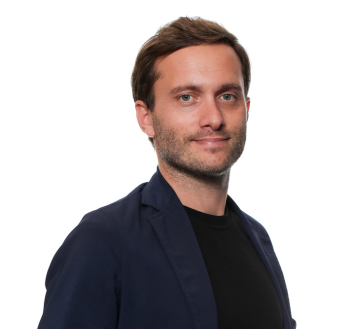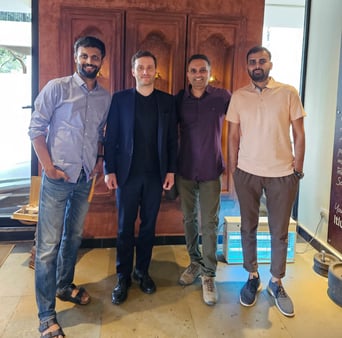
How can studying in Dublin, the entrepreneurial capital of Europe, help us to learn from “unexpected” entrepreneurial ecosystems? Professor Giulio Buciuni, director of the MSc in Entrepreneurship & Innovation, describes how entrepreneurship can provide crucial support for the growth of local economies.
As the Director of the MSc in Entrepreneurship & Innovation programme, I encourage students to think outside the box and investigate innovation and entrepreneurship in 'unlikely' places and sectors. That is why the programme focuses on innovation and economic development that is not solely centred on the usual world's tech capitals and winners.
Although this programme is based in Dublin, one of the world’s most vibrant innovation ecosystems, we gain insights from a variety of countries with different cultural and economic backgrounds that contribute to today's world of innovation and entrepreneurship.
The growing concentration of entrepreneurship and innovation appears to be in a handful of global 'superstar' cities (San Francisco, Boston, London, Tel Aviv, Bangalore, etc.) fuelling geographic polarization of technological innovation. As capital, talent and ideas are increasingly concentrated in a selected number of cities, technological inequality within countries is widening, posing serious threats to the economic and political stability of numerous countries.
However, places such as Galway in Ireland and Hyderabad in India are good examples of entrepreneurial cities within a country that already has a dominant player in the domestic entrepreneurship and innovation scene (i.e., Dublin and Bangalore).

Prof Giulio Buciuni with Pavan Sathiraju, Sri Charan Lakkaraju, Kashyap Chaturvedula
Ireland is ranked as the third-best country in Europe for start-up entrepreneurs, as the Ireland start-up visa is a popular choice among foreign entrepreneurs. It benefits from close connections to the UK and US markets and a convenient system of corporation tax – good incentives to both launch and grow businesses.
Dublin itself is already home to over 1600 start-ups. However, our research highlights how another Irish city, Galway, has also given shape to a vibrant med-tech entrepreneurial ecosystem within the country.
Like the Dublin of Europe, Bangalore in India has been the prominent start-up capital of south-east Asia. However, time spent in Hyderabad showcases how innovative thinking supports growth in new cities - it is now home to 3500 start-ups. In fact, T-HUB, an entrepreneurial incubator, is one of the largest in Asia. Since its establishment in 2015, it has provided support to more than 1100 start-ups which have raised more than 500 million dollars.
The city’s success hinges on the growing presence of tech multinationals (Amazon opened its largest campus worldwide there), reputable colleges such as the Indian School of Business (ISB), and the large availability of a highly qualified labour pool. The story of Hyderabad helps us shed further light on the mechanisms whereby entrepreneurial ecosystems can develop even if they are not located in one of the World's tech capitals.
“Transforming Business for Good” means extending the reach and benefits of business to all areas of a country and community, not just in a select few cities. The research we are conducting in the ecosystems of Galway and Hyderabad demonstrates how entrepreneurs can contribute to the growth of a city without a strong entrepreneurial foundation.


